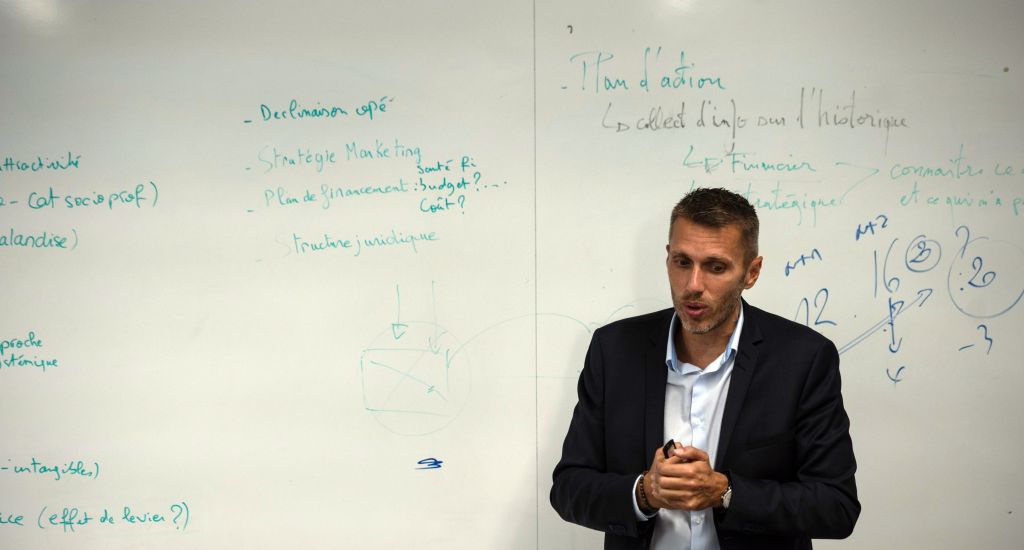
Managing the in-between: behind the contradictions, a world of opportunities
Published on 2022.11.08
Individual aspirations and collective identity, well-being and performance, economic development and CSR, long-term vision and short-term reality, remote and face-to-face contact, transformations and stability... People are faced with many contradictions in the organizations where they work. How can we manage these in-between situations, which are both the fruit of an earlier economic worldview and the seedlings of future competitiveness?
La fin de l'époque productiviste
Before looking at the new challenges created by the tensions inherent in all organizations, we need to look back at a major change in today's economic world: productivism. Anchored in the collective imagination of management as the Holy Grail, this notion is closely intertwined with the history of the 20th century. Driven by the invention of mass production for a post-World War II economy, it is no longer the one and only route to competitiveness.
"Today, companies need to look for other ways to gain a competitive edge and to meet a two-fold challenge; namely, to help managers to deal with employees who want to be treated very much as individuals and who are looking for a degree of autonomy, while at the same time being subjected as managers to a top-down or command-led strategy. Maintaining employees' sense of individuality, while also working in the best interests of the company, is a manager's main challenge in situations like these,” reports Gilles Basset, the director of development of customized training programs at emlyon business school.
L'entreprise, lieu d'injonctions contradictoires
If there is one management role that clearly embodies this tug-of-war between opposing forces within a company, it's the HR director position. "In a highly competitive recruitment market for, HR directors are well aware of the need to encourage individuality and a sense of exploration in order to retain their existing resources and attract new ones. In doing so, they sometimes come up against the will of executive management – for whom they act as an intermediary – which is more focused on operational delivery and having its strategy fully applied," explains Gilles Basset. This exploration/exploitation debate, well known in the world of management, has become the standard feature of competitive organizations. It is inextricably linked with another in-between issue: stability and transience. "The timescales of business activities are constantly accelerating, yet at the same time, employees are being asked to take a step back and to reflect on things. In situations like these, it's difficult to make decisions, which necessarily involve a process of exploration and collective dynamics," notes Jean-Louis Magakian, professor of strategy and organization at emlyon business school.
And these are not the only contradictions. Individuals are expected to stand out, while at the same time be fully integrated into the collective, and to be both experts in their field and explorers of everything new. Meanwhile, knowledge is also under threat: "Expert knowledge is codified using scientific criteria. However, by trying to codify too much, we tend to stifle internal company knowledge, which is unique to an organization and of great value. Such knowledge is vital for a company to function properly – and even to achieve business success," adds the professor of strategy and organization at emlyon.


La transformation des organisations et le renouveau des pratiques managériales ?
Another challenge for management today is to run the business either in the traditional way, by hiring employees, or by using other forms of collaboration and contracting, such as part-time staff, remote working, or even temporary "Uberized" staff. As Gilles Basset points out: "Previously considered as decision-makers, managers are increasingly involved in negotiations and discussions. Their role is now tinged with in-betweenness: acting as guarantors that the existing rules will be applied, while at the same time also leading the drive for new sources of competitiveness."
All this in-betweenness and all these contradictions point to a need for transformation in managerial practice – although it remains impossible to guess at its likely structure – and the creation of new, ad hoc forms of business organizations. In Gilles Basset's view: "For this transformation to succeed, the entire managerial community, from top to bottom, needs to be involved. It is also an opportunity for an organization to innovate in all areas, starting with management practices, products and/or services, and processes.”
These contradictory messages look to be an opportunity for companies to reinvent themselves, and for people to develop new skills, practices, and ultimately their own individuality. Some categories of employees have understood this. "There is a grey area, at the crossroads of the previous world and the future world, that is currently rich in possibilities. This is especially true for the young generation who, in their quest for meaning and personal fulfilment, are now using companies not only as places for development but also as ways of achieving their own personal objectives," sums up Jean-Louis Magakian.
emlyon business school designs tailor-made solutions to support companies in their need to adapt and transform their organization, revitalize managerial practices, adapt individuals and the organization to disruptions and emerging models

